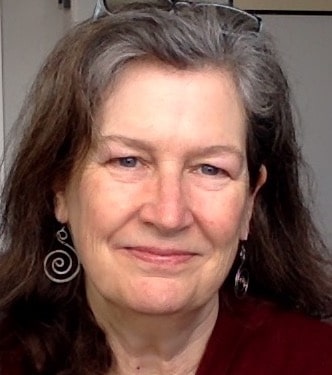
Welcome to Tuesday’s edition of Writing Prompts for Stay-at-Home Writers. Today’s prompt is from Beth Alvarado.
Beth Alvarado is a 2020 Oregon Literary Fellowship recipient and a 2020 Oregon Book Award finalist. Her book Anxious Attachments is also long-listed for the PEN/Diamonstein-Spielvogel Award for the Art of the Essay ; Anthropologies, and Not a Matter of Love. Her next book, Jillian in the Borderlands, is forthcoming in 2020. Having migrated north from Tucson, Arizona, she now lives in Bend, where she is core faculty at OSU-Cascades Low Residency MFA Program.
Beth shared the following writing exercises and thoughts on autobiographical writing:
When I teach autobiographical writing, I talk about the 3 R’s of memoir: Remember, Recreate, Reflect. The exercises below are about remembering, the first step in writing, and are designed to help you generate material. As you remember, you want to imagine the moment with all of its concrete details and appeals to the senses. Jot them down as quickly as you can.
Reflection will usually come naturally, sometimes through your use of tone, sometimes simply through the way that you order or juxtapose those moments but also, often, through a thinking-through of what those moments meant to you.
That sense of discovery—of coming to understand through writing—is often what gives a memoir or a personal essay its narrative energy. It’s better if you don’t understand the significance of what you’re writing when you begin. Better to start with a question. Trust serendipity!
Remember: the word remember means, literally, “to re-member” or “to put back together.” A memoir, like memory itself, can be fragmented. It can jump around in time, just like memory does—as long as the reader can follow. Peggy Shumaker’s memoir, Just Breathe Normally, about her recovery from a traumatic brain injury, is a good example of the way that fragmented memories can begin to cohere and accrue meaning.
I often think of the style of a memoir—or personal essay—as being at least partly determined by the balance between “recreating” and “reflecting” with, let’s say, David Sedaris on the “recreating” end of the continuum and Marcel Proust on the “reflecting” end. But I don’t think, as we write, we are aware of doing either. It’s only in revision that our intentions become clearer to us and that we can decide where we need to do more re-creating—by adding scenes, let’s say—or more reflecting.
These exercises are meant to help get you started, to generate material: to take you from remembering to recreating.
Writing exercises:
- Pick a number between 5 and 30. That is your age – if you’re under 30, pick again. Now think of a place that was important to you when you were that age and begin by describing it. Focus on the sensory details. Allow yourself to follow your memories wherever they go.
- What is your earliest memory or the first song you remember? Write down the details: images, sounds, smells. Don’t try to control your memory here. Let it go to another memory.
- Write about a dream, especially if it was a recurring dream or one of those dreams that haunt you. Again, begin with sensory details—recreate the dream, don’t try to make sense of it right away.
- Pick a photograph from your past and describe it, including even small details, like the expression on a person’s face, or what the people in the photograph might be hearing as the photo is taken. Now write about what the person—it might be a younger version of yourself—in the photograph can see, looking out of the frame—what else is going on? what happened right before the photograph was taken? Minutes before? Days before? Now, write about the photograph from the point of view of the photographer or from your point of view years later. The point is to pick one moment and write about it from three different angles or perspectives. Let each perspective go on for as long as it goes on.
- Make a playlist about a moment or part of your life: https://www.largeheartedboy.com/blog/archive/2019/05/beth_alvarados.html
Some useful links:
“Memory and Imagination” an essay on writing memoir by Patricia Hampl
“What Happens to Writing When We Stop Pretending Anything Makes Sense?” Ysabelle Cheung on Coronovirus, Hong Kong, and Fragmentation
*
Tune in Friday for a prompt from Armin Tolentino. Let us know how you’re doing, and how your writing is going, and let us know if you have a prompt to share! Email Susan Moore, Director of Programs for Writers, at susan@literary-arts.org.


